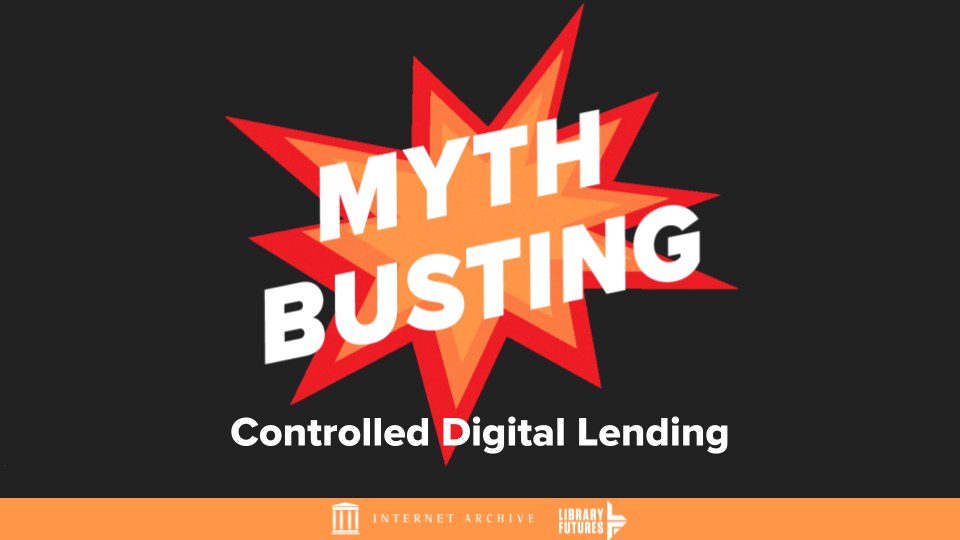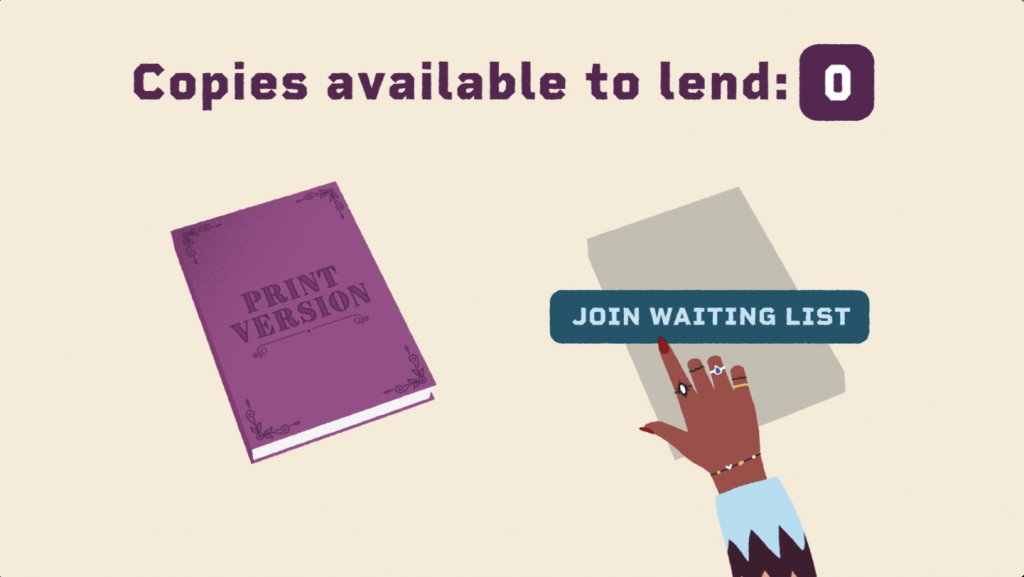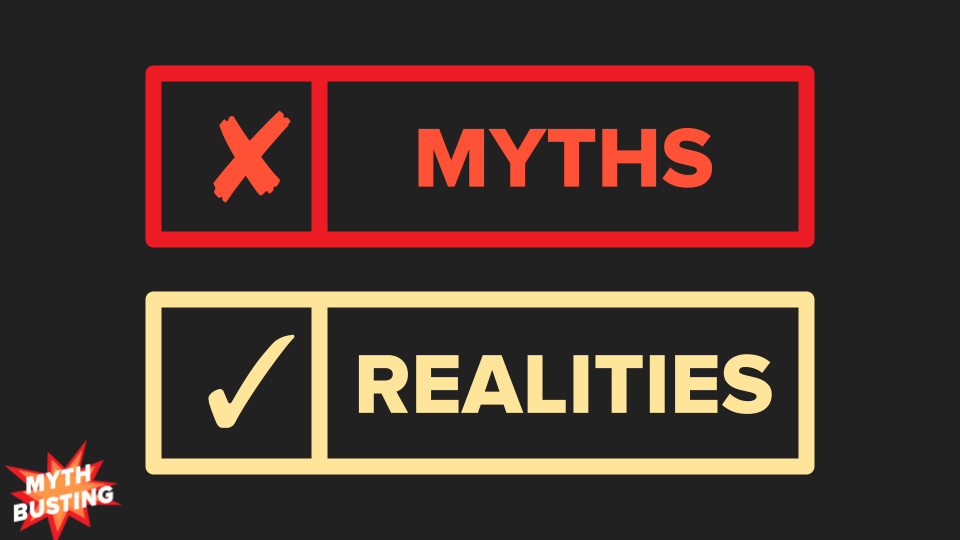
Academics, legal experts, and authors explained the thoughtful reasoning and compelling need for libraries to engage in Controlled Digital Lending (CDL) at a webinar hosted by the Internet Archive and Library Futures on February 11. A recording of the session is now available.
The panel dispelled myths about CDL, the digital lending model in which a library lends a digital version of a print book it owns. Emphasizing the limited and controlled aspect of the practice, the speakers said CDL allows libraries to fulfill their mission of serving the public in the digital age. The global pandemic only underscores the importance of providing flexibility in how people can access information.
Isn’t CDL digital piracy? No, CDL is not like Napster, said Kyle K. Courtney, copyright advisor at Harvard University, referring to the music file-sharing service. Twenty years ago, the actions of Napster were ruled illegal because it made unlimited reproductions of MP3 music to anyone, anywhere.
“CDL uses technology to replicate a library’s right to loan works in a digital format—one user at a time,” Courntey said. Libraries are using rights they already have, leveraging the same technology as publishers to make sure that the books are controlled when they’re loaned—not duplicated, copied or redistributed.
“Libraries are not pirates. There is a vast difference between the Napster mission and the library mission,” Courtney said. “We can loan books to patrons. Only now we’re harnessing that right in the digital space.”
In laying out the rationale behind CDL, Courtney described the “superpower” granted to libraries by Congress through copyright law to serve the public. The “fair use” section of the law allows libraries to responsibly lend materials, and experts say logically includes both print and digital works.

The idea of “fair use” has been around as long as there has been copyright, and it applies to new technologies, said Michelle Wu, attorney and law librarian at the webinar. The Internet Archive did not invent CDL. Wu is the visionary behind CDL, developing the concept in 2002 as a way to protect a library’s print collection from natural disaster—an imperative she faced in rebuilding a library destroyed by flooding.
Just as libraries lend out entire books, fair use allows the scanning of whole books, said panelist Sandra Aya Enimil, copyright librarian and contract specialist at Yale University. The law makes no mention of the amount of material that can be made available under “fair use,” so for libraries to fulfill their purpose they can make complete books—whether in print or digital—available to patrons, she said.
It’s a myth that librarians need author and publisher permission for CDL, explained Jill Hurst-Wahl, copyright scholar and professor emerita in Syracuse University’s School of Information Studies. “Authors and publisher control ends at the time a book is published, then fair use begins,” she said. “Once a work is legally acquired by you, by a library, the copyright owners’ rights are exhausted.”
Library lending is viewed as fair use, in part, because it is focused on socially beneficial, non-commercial outcomes, like literacy, said Hurst-Wahl. Also, libraries loan physical books without concern about the market effect—so the same rules apply if a digital version of the book is substituted.

CDL does not harm authors or publisher sales, the panelists emphasized. Indeed, it can provide welcome exposure.
“The reality is that CDL can help authors by enhancing discoverability, availability and accessibility of their works,” said Brianna Schofield, executive director of Authors Alliance, speaking at the event. “It helps authors to spread their ideas, and it helps authors to build their audiences.”
Many of the books that are circulated by CDL are rare, out-of-print books that would otherwise be unavailable. This source material can be useful for writers as they develop their creative works.
“Digital and physical libraries contribute to a healthy publishing ecosystem and increase sales and engagement for creative works,” said Jennie Rose Halpin, executive director of Library Futures, a newly formed nonprofit coalition advocating for libraries to operate in the digital space. Research shows that leveraged digitization increases sales of physical additions by about 34% and increases the likelihood of any sale by 92%, particularly for less popular and out-of-print works.
Because digitized versions can be made more readily available, CDL can extend access to library collections to people with print disabilities or mobility issues, the panelists noted. CDL also allows libraries to preserve material in safe, digital formats with the best interest of the public—not profits—at the center of its work.
“People love books and will buy if they’re able. But we have to remember that paper books and even some ebooks do not serve the needs of all readers,” said Andrea Mills, digitization program manager at the Internet Archive and lead on the Archive’s accessibility efforts. “Accessibility is a human right that must be vigilantly protected.”
For anyone interested in learning more about how to get involved with CDL, the Internet Archive now has 2 million books available to borrow for free, and an active program for libraries that want to make their collections available through CDL.
“The CDL community of practice is thriving,” said Chris Freeland, director of Open Libraries at the Internet Archive. “We are in a pandemic. Libraries are closed. Schools are closed. CDL just makes sense and solves problems of access.”
To learn more about CDL, and to show your support for the library practice, join the #EmpoweringLibraries movement.

That’s all great, but I’ve got one comment about the current uploader…
I want to create a collection—from scratch, that is!
Awesome post, so my personal argument against people attacking CDL:
-Author’s Guild excuse on Capitol Records v. ReDigi: Guess what: the majority of stuff they obtained were initially physical, and have never sign to any EULAs or contracts that would take away their rights of the first-sale doctrine or fair use. I’m certain there is no such thing as a physical book that requires agreeing to some terms that would take away the rights of the user and the library in order to read them. Most physical stuff purchased (not loaned or rented) that is purely NOT digital are rarely ever had such a contract or EULAs attached to it.
-“but digital content do not wear and tear unlike physical books, which that last forever”, might as well prohibit physical libraries from fixing books with torn pages, damaged covers, and such if you are against this type of digital preservation.
Plus, the DRM are always in effect for the duration of the in-copyright period, even if under the NEL. So if the copyright holders DIDN’T opt out because they’re unaware of it or some other cases, by the time the NEL ends, it will go back to normal, as if the NEL didn’t happen at all, because the digitized books are STILL protected, and is subject to the (re)checkout and waitlist system after the NEL ended. It is not like people can obtain stuff from the open library during the NEL, and freely pirate them as they wish, and causes long term effects even after the NEL is over. This should weigh in for fair use on the 4th factor, the effects on the market, there is no harm on “the unlicensed use harms the existing or future market for the copyright owner’s original work”.
Not to mention, this is an EMERGENCY, if the IA had to negotiate licensing to drop the waitlist system of allowed books, that would take too long to address the lockdown issue, plus, we are still paying property (county) taxes, and a part of that goes to libraries, that during the lockdown, we cannot use because they’re closed. Furthermore, some books are needed in hospitals because they need manuals for health-related problems, since many hospitals are OVERWELMED with patients with covid-19.
Also, guess what, the excuses of DRM being bypassed (such as a loaned book viewed on some browser can be stolen by accessing the browser’s cache data), is equivalent to:
-People who borrow physical books from a real library, take it home, use their phone’s camera feature and take pictures on it, and distribute it freely.
-The same applies to ebook licenses too.
Plus, no DRM, especially if the content is non-interactive, is perfect.
‘Fair use’ does not specify the time-frame for which an item may be lent. When digital items such as novels are loaned with a limit of, say, 1 hour, as the Internet Archive does for most novels, this does not give the reader ‘fair use’ . They cannot download an item and read for any significant length of time, in digital terms the Internet Archive is no longer a lending library but a reading room – and one with rather dim lights!
Such a amazing post very informative and I will definitely suggest other people about it for sure.